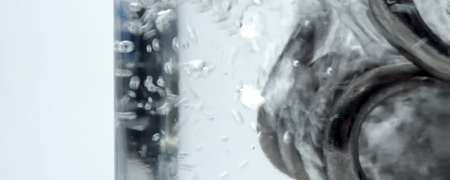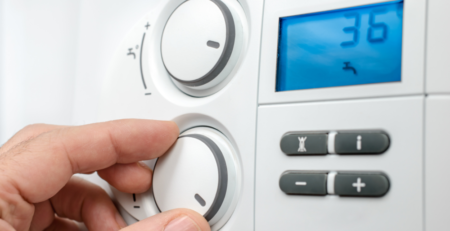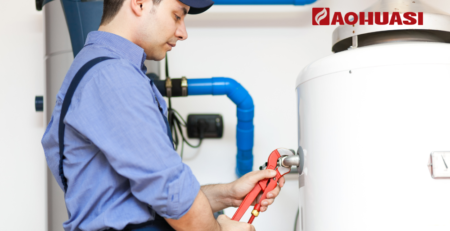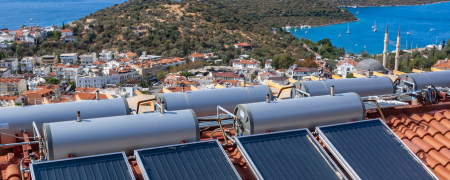Is an Electric Water Heater Expensive to Run?
Introduction
Electric water heaters are a common household appliance that provides hot water for various activities such as bathing, washing dishes, and laundry. However, many homeowners wonder whether electric water heaters are expensive to run in terms of energy consumption and utility costs. In this article, we will explore the factors influencing the cost of running an electric- water heater and debunk some common misconceptions associated with these appliances.
Is an Electric Water Heater Expensive to Run?

How Electric-Water Heaters Work
Electric- water heaters use an electric resistance element to heat the water stored in a tank. When you turn on the hot water tap, cold water enters the tank, and the heating element warms it to the desired temperature. The heated water is then ready for use.
Advantages of Electric-Water Heaters
Electric water heaters have several advantages, including ease of installation, lower upfront costs compared to some alternatives, and relatively simple maintenance requirements.
Drawbacks of Electric Water Heaters
On the downside, electric water heaters are generally less energy-efficient than other types, which can lead to higher operating costs over time.
Factors Affecting Energy Consumption
The cost of running an electric water heater depends on various factors that impact its energy consumption.
Insulation and Heat Loss
Proper insulation around the water heater tank can minimize heat loss, reducing the frequency of heating cycles and saving energy.
Temperature Settings
Lowering the thermostat temperature can lead to energy savings, but it’s essential to find the right balance between comfort and cost.
Water Usage
The more hot water your household consumes, the more energy the water heater will use to keep up with the demand.
Energy Efficiency Ratings
Newer electric water heaters come with energy efficiency ratings. Choosing a model with a higher efficiency rating can lead to cost savings in the long run.
Calculating the Cost of Running an Electric Water Heater
To determine the cost of operating your electric water heater, you’ll need to consider its wattage, daily usage, and electricity rates.
kWh Consumption
Start by checking the wattage of your water heater and convert it to kilowatts (kW). Most electric water heaters have a wattage between 3000W to 6000W.
Determining Daily Usage
Estimate the number of hours your water heater operates daily based on your household’s hot water usage patterns.
Monthly and Annual Cost Estimates
Multiply the daily kWh consumption by the electricity rate per kWh to get the daily cost. Extrapolate this to estimate monthly and annual operating costs.
Tips for Reducing Electric Water Heater Costs
Lowering the expense of running your electric water heater is possible with some simple yet effective tips:
Lower the Thermostat Temperature
Lowering the thermostat by a few degrees can lead to noticeable energy savings without compromising comfort.
Insulate Your Water Heater
Wrapping your water heater with an insulating jacket can minimize heat loss, especially in colder climates.
Fix Leaks and Drips
Addressing leaks and drips promptly will prevent wastage of hot water and excessive heating cycles.
Use Low-Flow Fixtures
Installing low-flow showerheads and faucets reduces hot water consumption and, consequently, energy usage.
Consider a Timer
Using a timer for your electric water heater allows you to schedule its operation, ensuring it’s active only when needed.
Comparing Electric vs. Other Water Heater Types
When assessing the cost of running an electric water heater, it’s essential to consider how it stacks up against other water heater types.
Electric vs. Gas Water Heaters
Gas water heaters may have lower operating costs in areas with affordable natural gas rates. However, they come with higher upfront costs and additional ventilation requirements.
Electric vs. Solar Water Heaters
Solar water heaters are eco-friendly and cost-effective in the long term, but their performance may vary based on geographical location and climate.
Electric vs. Tankless Water Heaters
Tankless water heaters are energy-efficient because they only heat water on demand, avoiding standby energy losses.
Environmental Impact of Electric Water Heaters
The environmental impact of electric water heaters is a concern for environmentally-conscious consumers.
Electricity Sources and Emissions
The environmental footprint of an electric water heater depends on the sources of electricity in your region, as some power plants emit more greenhouse gases than others.
Eco-Friendly Alternatives
Exploring renewable energy options like solar or wind power can help reduce the environmental impact of your water heater.
Common Misconceptions About Electric-Water Heaters
Several misconceptions exist regarding the cost and efficiency of electric water heaters.
“Electric Water Heaters are Always Expensive to Run.”
While electric-water heaters may have higher operating costs than some alternatives, their efficiency can be improved with the right practices.
“Turning Off the Water Heater Saves Significant Money.”
Completely turning off the water heater may lead to higher energy consumption during reheating. Using a timer is a more efficient approach.
“Old Water Heaters are as Efficient as New Ones.”
Older water heater models may lack the energy-saving features present in newer, more efficient units.
“Bigger Water Heaters are Always Better.”
Choosing a water heater that suits your household’s needs can prevent unnecessary energy waste.
Incentives and Rebates for Energy-Efficient Water Heaters
Many governments and utility companies offer incentives to encourage the use of energy-efficient appliances, including electric-water heaters.
Government Programs
Government initiatives often provide tax credits or rebates for homeowners who install energy-efficient water heaters.
Utility Company Incentives
Some utility companies offer cash incentives or discounts for customers who upgrade to energy-efficient appliances.
Tax Credits
Homeowners may be eligible for federal tax credits when they invest in qualifying energy-efficient appliances.
Conclusion
In conclusion, the cost of running an electric water heater can vary based on several factors. While they may not be the most energy-efficient option, adopting smart practices, using incentives, and considering alternative energy sources can help mitigate expenses and reduce their environmental impact. Remember to regularly maintain your electric water heater to ensure it operates optimally and consider making energy-efficient upgrades when the time comes.
FAQs
- Are tankless electric water heaters cost-effective?
- Yes, tankless electric water heaters can be cost-effective due to their on-demand heating, which reduces standby energy losses.
- Can an electric water heater explode?
- The risk of an electric-water heater exploding is extremely low. Proper maintenance and safety measures prevent such incidents.
- What is the average lifespan of an electric water heater?
- On average, electric-water heaters last between 10 to 15 years, depending on usage and maintenance.
- Should I turn off my electric water heater when I’m away on vacation?
- It’s better to use a timer or the “vacation mode” if your water heater has one, as completely turning it off can lead to higher energy consumption upon reactivation.
- Is it better to repair or replace a malfunctioning electric water heater?
- If your water heater is old or requires extensive repairs, it may be more cost-effective to replace it with a newer, more energy-efficient model.








Leave a Reply